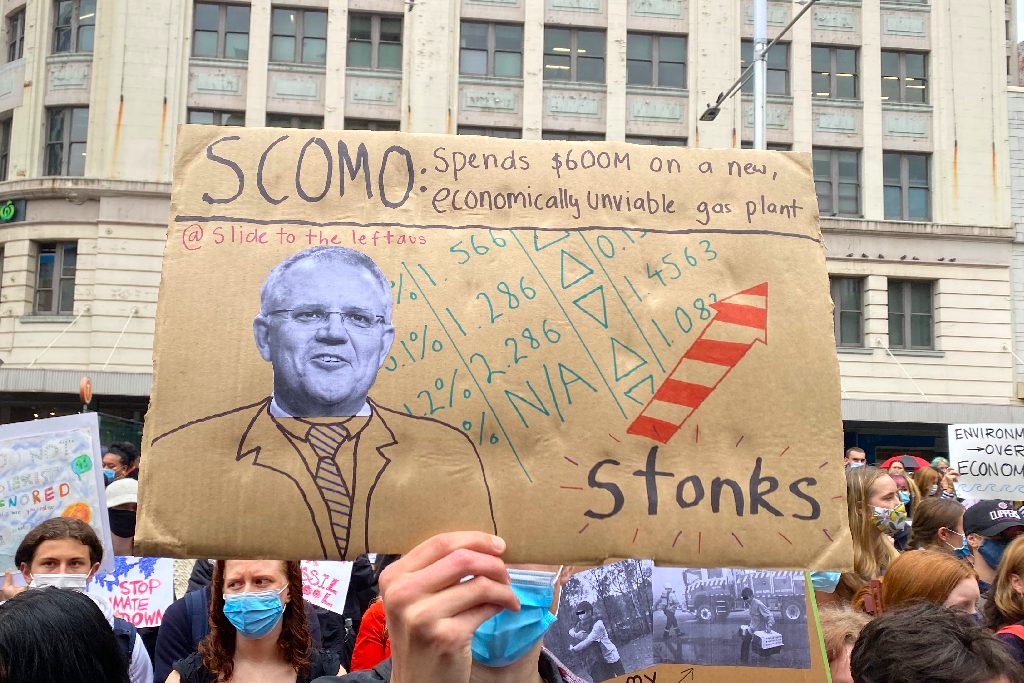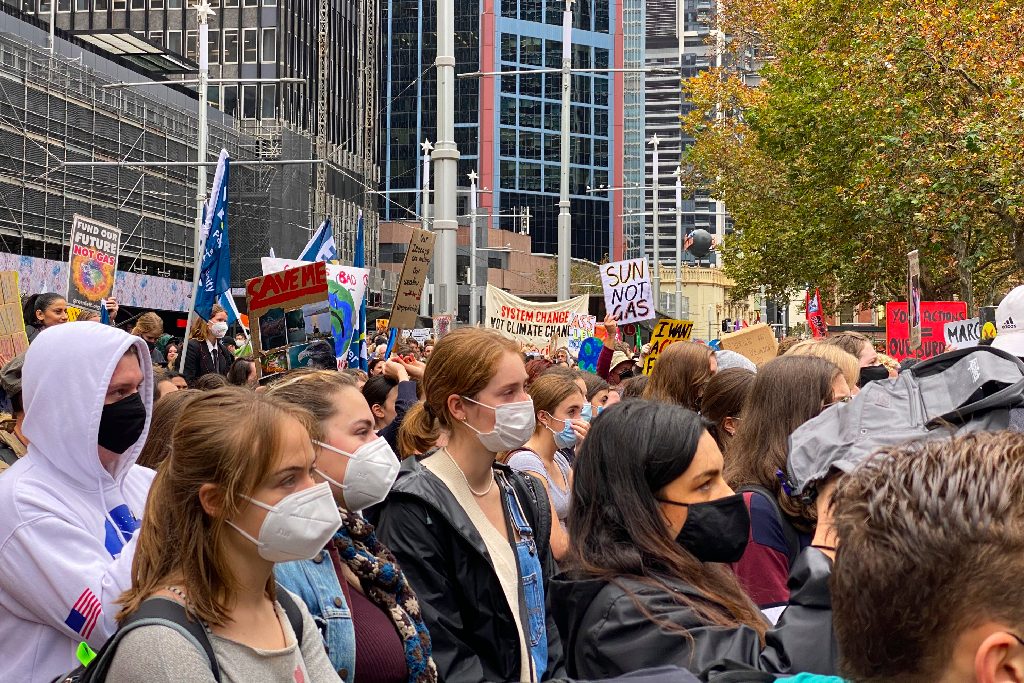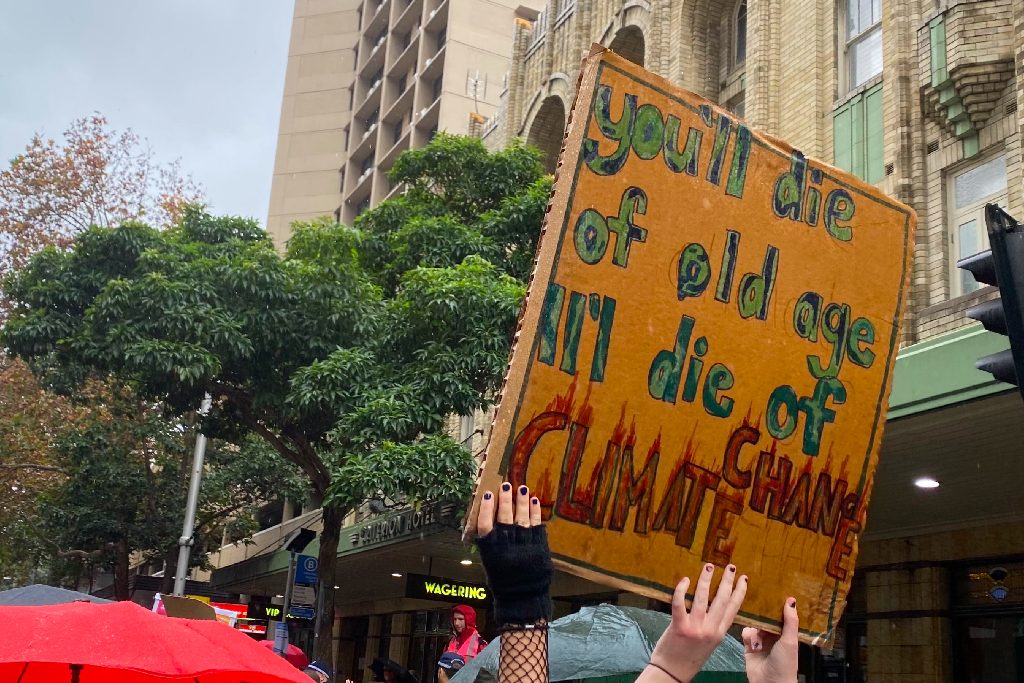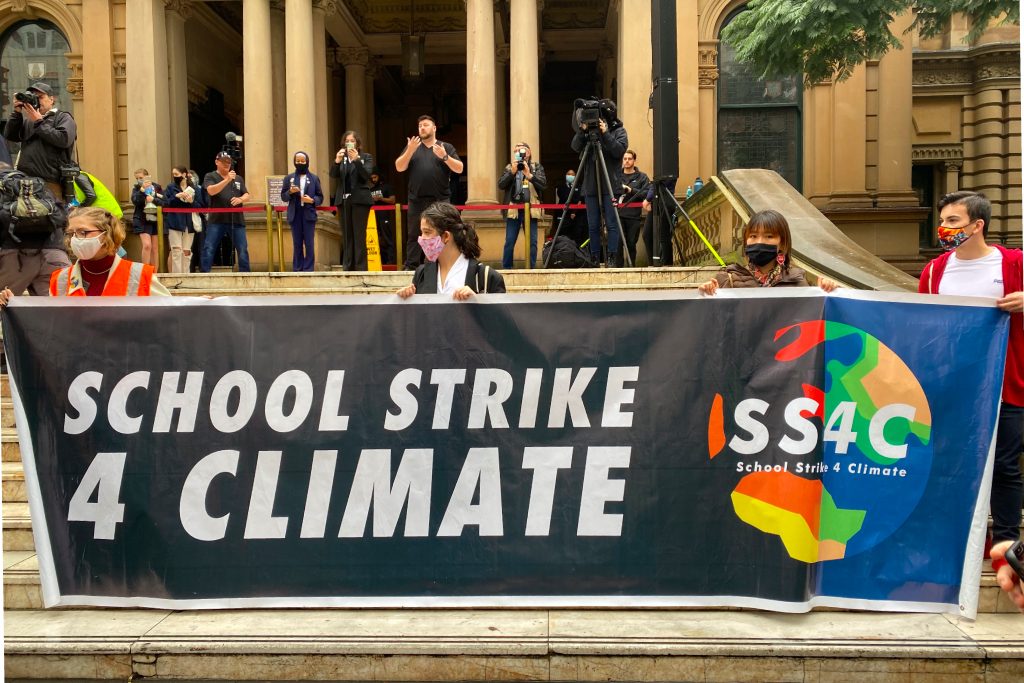Thousands Of Aussie Students Skipped School To Help Save The Environment Today
Today was the first national School Strike 4 Climate movement in nearly two years.

Tens of thousands of students across the country put down their books to fight climate injustice at School Strike 4 Climate on Friday.
The movement saw their first strike in nearly two years. In September 2019, an estimated 300,000 gathered across 100 areas in what was thought to be the largest public demonstrations in Australia since 2003.
NSW’s key focus was divesting from gas projects, particularly the new $600 million Kurri Kurri gas plant in the Hunter Valley. Last week’s Federal budget announcement for 2021-22 allocated a further $59 million to additional gas projects and supply nationally.

In Sydney, an estimated 10,000 protestors showed up in front of Town Hall at midday. Cardboard signs doubled as shields as the students pushed through a brief rain spell.

The rally began with an acknowledgement of country from Gadigal Elder Aunty Rhonda Dixon-Grovenor, before speeches from regional, Indigenous, and POC speakers.
The lack of First Nations input to Australia’s climate crisis response was heavily stressed by both emcees and guests.
“It is us who is being affected first, it our land that is being exploited. Our country. Our Mother. All of you share [the land] because we invite you to,” said Indigenous teen Will in his address to the crowd.

“Climate change is a man-made issue that essentially tampers with the preservation of our culture,” said Samoan activist Pelepesite, from NSW Pacific Climate Warriors, on how Australia’s climate inaction is affecting neighbouring islands.
Notable chants include: “ScoMo fuck you, we deserve a future too” and “The youths are rising, no more compromising”.

An hour in, the group marched to Prince Alfred Park in Surry Hills, where the kids kept spirits high with some Mexican waves. The strike ended with attendees forming an massive human sign, captured aerially by drone.
Melbourne’s contingent boasted 20,000 attendees, Brisbane 5000, Canberra and Adelaide 2000, Hobart 1000, and smaller gatherings in rural areas, according to organisers.


